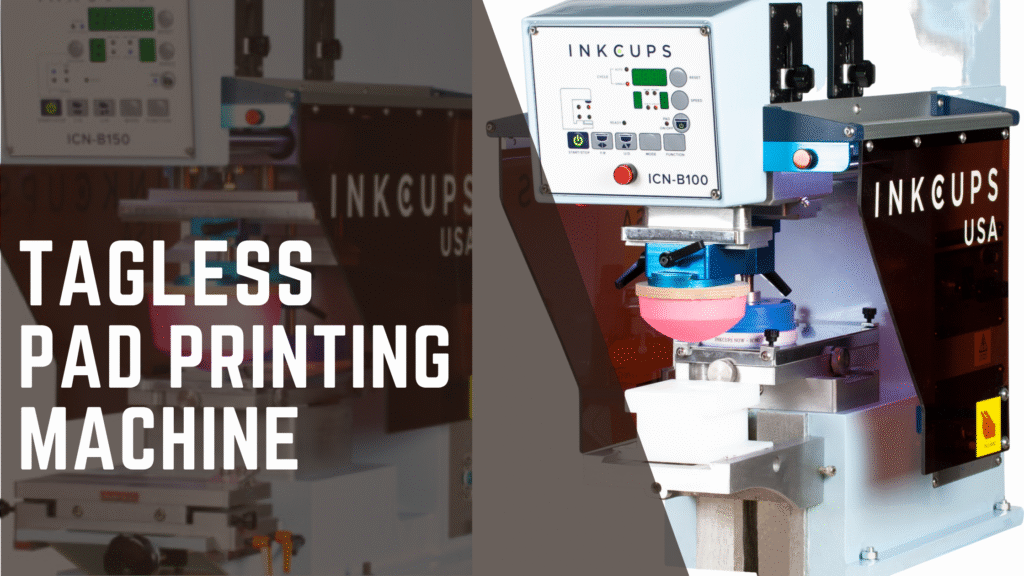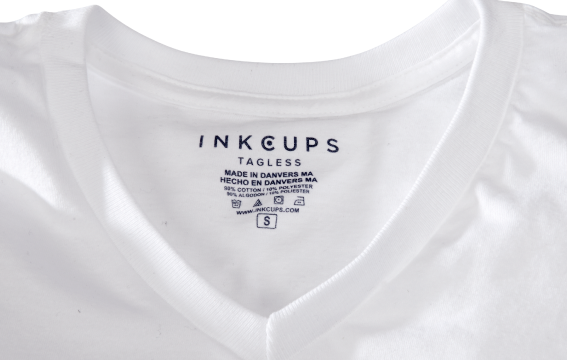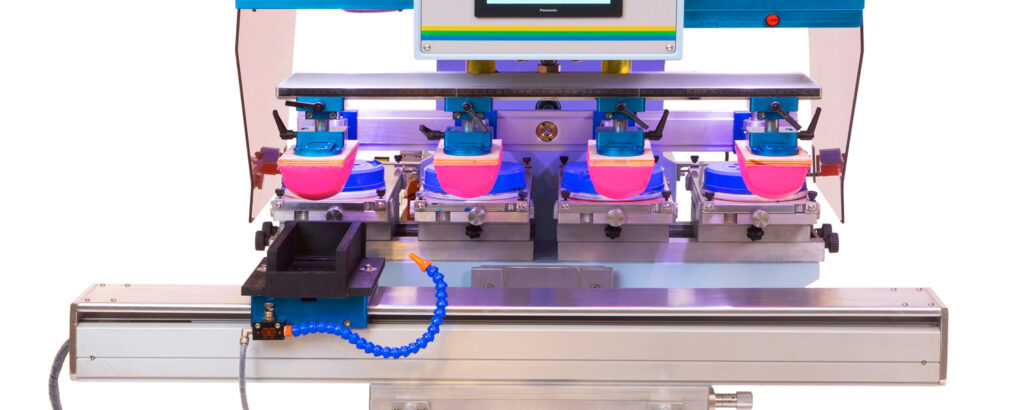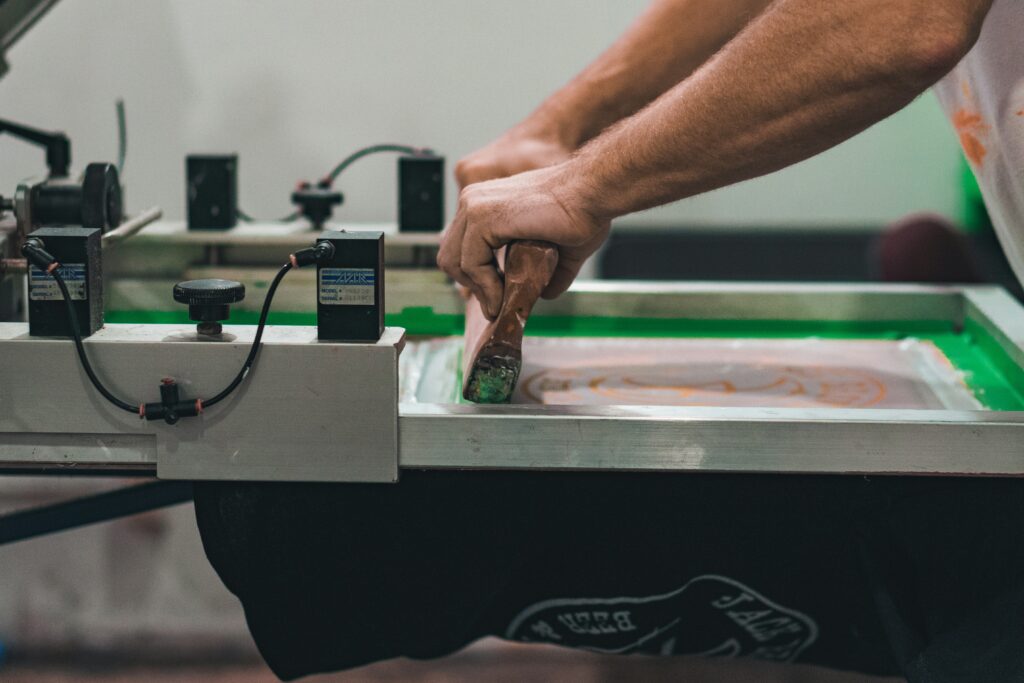Where to buy Inkcups Printing Machines in Pakistan?
Buy Inkcups Printing Machines from Authorized Distributors
If you’re wondering where to buy Inkcups printing machines in Pakistan, turn to Precision Textile Solutions. They are the official distributor and provide the best tagless pad printing machines. Whether its tagless printing for apparel or promotional items.
They provide both types of machines and all the necessary supplies. Precision Textile Solutions takes care of everything needed for a successfully installed and supported pad printing setup.
Why Choose Precision Textile Solutions?
Relying on Precision Textile Solutions means you have a trusted business partner to improve your textile printing business. As the authorized distributor of Inkcups they can supply cutting-edge pad printing machines along with special customer service and helpful industry expertise
Authorized Distributor of Inkcups
Being an official inkcups pad printing machine distributor in pakistan, Precision Textile Solutions gives clients access to real machines, original parts and warranties from the source. It gives you both confidence in the system and security of mind.
Local Sales Support
Moving to local sales representatives means you can work more smoothly and efficiently at every stage of your sales process. Thanks to their familiarity with the local market, they can advise and solve issues in a way that fits their clients. It results in a very convenient way to buy Inkcups printing machines.
Efficient Technical Support
Their technical support team is ready to help quickly and correctly with installations, problems and maintenance tasks. With local expertise, your printing goes on with minimal downtime.
End-to-End Customer Support
Their commitment extends from the time it is manufactured until the end. They are there from the beginning, when you choose Inkcups, through installation and for after-sales service, so you get the most out of your investment.
Deep Industry Knowledge
Since they are experts in textiles and industrial printing, they suggest the best Inkcups machine for any product, like garments, glass, plastic, electronics or medical devices. Our purpose is to allow for a hassle-free move when you request tagless printing.
The team at Precision Textile Solutions is fully trained and prepared to deliver the highest level of service you’ve come to expect from Inkcups.Precision Textile Solutions offers you a reliable supply, expert advice and prompt service.
What is Tagless Pad Printing?
Tagless pad printing is changing how labels are applied to clothing. Now, instead of adding itchy tags that tear off, manufacturers simply print the details on their clothing. This eliminates the need for extra inventory, cuts costs, and improves comfort for consumers, especially infants and children.
It comes as no surprise that tagless pad printing for clothing has replaced regular labels in the industry today. Regardless of which industry you work in, if you want to buy Inkcups printing machines, you should have complete knowledge about tagless pad printing.
Tagless Pad Printing Machines: An Overview
Tagless pad printing machines are designed to put on high-quality labels directly on fabrics. These machines create sharp, durable and detailed prints on many types of textiles and are also suitable for applying to plastic, glass and metal pieces. You can purchase pad printers from Inkcups that have a wide range of machines ranging from 1-6 colours.
Working of Tagless Pad Printing Machine
Using a tagless pad printer, ink from an etched plate is put onto a silicone pad which directly transfers the ink onto the material being printed. The initial step is to put ink in a closed ink cup that slides on the etched plate to spread the ink into the carved picture.
A silicone pad lays against the plate, collects the inked image, and then puts it on the fabric. As a result, you get consistent, high-quality, and soft labels, logos, and care instructions every time. The machines are built to operate quickly, last a long time, and be accurate on a range of types of material.
Key Features of Inkcups Pad Printing Machines
Inkcups pad printing machines are suitable for users at any level of experience. Some of the main features are:
• VersaCup Ink Cup System: Comes in sizes ranging from 60mm to 150mm.
• Tool-less Changeovers: For quick and easy setup.
• Programmable Controls: Allows for more accurate handling of the printing process.
• Robust compression: Suited forlargepads and objects with irregular shapes.
• 1 to 6 Color Options: To fulfill various types of printing needs.
Benefits of Using Tagless Printing Technology
Tagless technology offers many benefits when used.
• More comfortable clothes especially for children are now available.
• Reduction in production costs by eliminating label fabrics and sewing.
. • Lower amounts of fabric are wasted during the production process.
• Reduced effort needed to manage inventory.
• Designs made to last and come without defects.
Popular Inkcups Printing Machine Models
If you’re planning to buy Inkcups printing machines, here are some top-performing models to consider:
B100 1-Color Tabletop Pad Printer: This printer is ideal for printing small plastic items, promotional products and medical gadgets. Has a no-tool design and can achieve up to 120 pounds of compression.
B150 Large Image Printer: is meant for applications on drinkware, bezels and injection-molded housings. Comes with a 150mm VersaCup and can handle prints with a diameter of 140mm
2200LI Long Image Printer: If you need to print on rulers and hockey sticks, the 2200LI Long Image Printer is the best option. Uses a 90mm ink cup that can transfer inks very quickly.
ICN-200: ICN-200 is best used for large industrial items, mainly molded bins and satellite dishes. .Supports items up to 11.7″ in height.
Brite Pad Printer: Brite Pad Printer was made expressly for garments that don’t require tags. Makes white and light-colored garments almost transparent on dark fabrics.
Types of Pad Printing Inks Available
Inkcups has solvent-based inks that match different materials:
- pad printing ink for glass: Strong adhesion and maximum durability.
- pad printing ink for plastic: Flexible and able to handle shocks.
- Custom Inks: Cpad printing suppliers offer color matching with custom adhesion properties for unique applications.
Note: It is important to do adhesion tests on your product before launching full-scale production.
Pad Printing Accessories & Supplies
To complement their machines, Percision Textile provides:
- Pad printing plates (clichés)
- Silicone transfer pads
- Exposure units and laser plate-making tools
- Adhesion testing kits and mixing tools
All of these pad printing accessories support a flawless pad printing process.
Final Notes on Choosing the Right Pad Printer
When you decide to buy Inkcups printing machines, keep your production goals and material types in mind. No matter if you choose fabric, glass or plastic, Inkcups supplies an effective print solution for your special needs.
Add to this the expert guidance and local support from Precision Textile Solutions and you are ready for ongoing efficiency and success. With Precision Textile Solutions, you benefit from professional advice, local support and customized solutions designed for you to achieve lasting success.
FAQs
1. What is the best pad printing machine for tagless labels?
The B100 and Brite Pad Printers are ideal for tagless garment printing.
2. Can I print on both glass and plastic?
Yes, with the appropriate pad printing ink and proper adhesion testing.
3. Do you offer support and training?
Precision Textile Solutions provides installation and training in Pakistan.
4. What pad printing ink should I use for electronics?
Use high-opacity, solvent-based inks suitable for non-porous surfaces.
5. How do I know which Inkcups machine is right for me?
Contact Precision Textile Solutions for expert consultation and demo sessions.
6. What things to consider if i have to buy Inkcups printing machines?
When buying Inkcups printing machines, consider the type of products you’ll print on and material compatibility.





